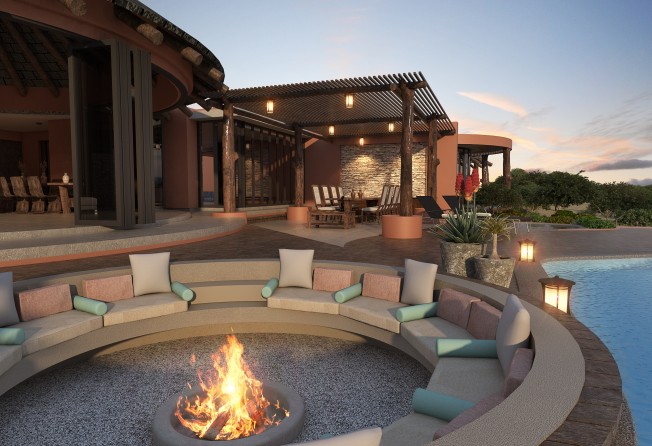Living wild: South African luxury villas offer heady mix of safaris, royalty and philanthropy
Luxury properties developed by a Swedish firm and backed by the king of the country’s Zulu nation are being marketed in Hong Kong, but analysts say buyers need to be aware of the risks

Hongkongers with a taste for an exotic lifestyle – and the money to afford one – are being offered the chance to buy a luxury villa on land belonging to the king of South Africa’s Zulu nation, in an arrangement that also benefits wildlife conservation and child education programmes.
The Thanda Royal Residences project, being developed by Swedish billionaire Dan Olofsson’s Thanda Group in conjunction with the Zulu king, is located north of the city of Durban in South Africa’s east and consists of 44 fully furnished villas.
Prices start at US$2 million for about 3,500 square feet, with 5,500 sq ft homes selling for US$3.5 million and 8,500 sq ft ones costing US$5.5 million. Each villa has electric fencing for security and protection from wild animals, and buyers have unlimited rights to enter the surrounding wildlife reserve.
Five villas have been sold, said Pierre Delvaux, chief executive and vice-chairman of the Thanda Group, in a media interview during a marketing trip to Hong Kong last week.
“Two are for families from Hong Kong and three for families in Singapore. Construction will start in April 2018,” he said.
“The Zulu king, the Olofsson family and I will occupy three villas so only 36 spots remain. We have another three reservations pending a review of legal documents. Potential buyers can sign reservation options while we take them through the legal process,” he added. Construction only starts after payment and approval by the Thanda Group and the Zulu king.
Although the project offers a quality lifestyle and the chance for personal wildlife safaris, potential buyers need to be aware of political uncertainty, currency risks and a lack of infrastructure in remoter regions, according to real estate agency List Sotheby’s.
“South African property, particularly that in safari parks, is a niche market in international property with not many transactions,” a senior executive of the agency said.
The executive noted that the South African government has high debt levels and the value of the rand currency has halved against the US dollar since 2011, posing risks for property investors.
Meanwhile, the benefits of safari properties have less to do with the yields and gains that drive most Chinese international investors and much more to do with lifestyle, prestige, and exclusivity, according to Chinese property portal Juwai.com.
“There are three challenges for Chinese buyers interested in safari properties: it is very hard to predict capital gains or reliable yields; for those who live outside the country, it is not always convenient to visit, and since such properties are often unique, it is very hard to calculate the correct purchase price,” said Carrie Law, chief executive of the portal.
“It is generally only a very small number of Chinese buyers who express interest in safari properties, and an even smaller number who actually complete a purchase.”
She noted that while property prices in South Africa are much more accessible than in other English-speaking markets, they have not been growing as fast as inflation, and it is hard to make the case to an investor that they will benefit from capital gains on South African property.
Thanda’s Delvaux, meanwhile, noted that buyers would be able to give something back to the region.
“The annual management fee the owner pays does not only go to maintaining the villa and the estate, but also to managing and operating the Mduna Royal Reserve with its some 7,000 animals, and to wildlife management, anti-poaching units and security,” he said.
Part of the purchase price will also go to the education of children through Olofsson’s Star For Life charity, which operates schools in southern Africa, he added.